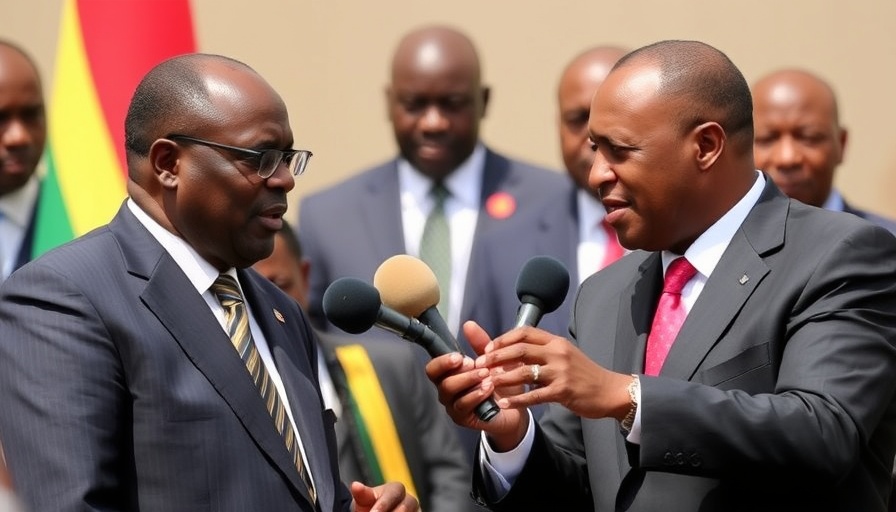
Addressing Trade Barriers: A Collective Call to Action
In a significant dialogue centered on economic cooperation, Kenyan President William Ruto and Ugandan President Yoweri Museveni have condemned the persistent trade barriers hindering East Africa's growth. Their discussions reflect an urgent plea for regional integration to bolster economic opportunities across member states.
The Economic Implications of Barriers
Trade barriers, such as tariffs and non-tariff obstacles, have long plagued East African economies. As leaders in the region, Ruto and Museveni highlighted how these impediments stymie potential trade growth, undermining efforts to create a robust economic environment. With integration plans like the African Continental Free Trade Area (AfCFTA), there’s a pressing need for harmonized policies that prioritize trade over bureaucratic delays.
Political Will and Governance in Focus
Ruto and Museveni's dialogue reflects a crucial perspective that political stability is directly linked to economic prosperity. Beyond mere rhetoric, actualizing free trade will require consistent, cooperative governance and policy alignment. Addressing political challenges swiftly will be vital in nurturing an ecosystem conducive to trade.
Global Context and Africa's Role
As global dynamics shift, East Africa must position itself favorably within international markets. While countries look towards partnerships beyond traditional alliances, regional economic cooperation becomes imperative. Trade discussions and agreements will help African nations not only become economically self-reliant but also influential players in the geopolitical arena.
Reflection on Future Trends and Opportunities
Ruto and Museveni’s remarks resonate deeply in today’s economic landscape. The intersection of African governance, international trade, and the digital economy presents promising avenues for investment in the region. With a concerted effort towards dismantling trade barriers, East Africa could unlock unprecedented economic potential. The unity of African nations will be fundamental in fostering a collaborative and prosperous future.
Conclusion: Mobilizing for Change
As the urgency for an integrated African economy mounts, the collaboration between leaders like Ruto and Museveni serves as a beacon for progress. Business leaders, investors, policymakers, and researchers must rally around these initiatives, advocating for effective trade policies that reflect the aspirations of the continent. The time is ripe for decisive action and visionary leadership.
 Add Row
Add Row  Add
Add 


Write A Comment